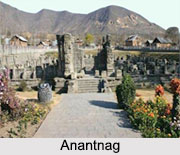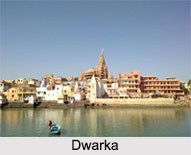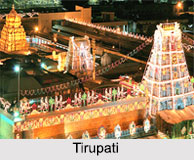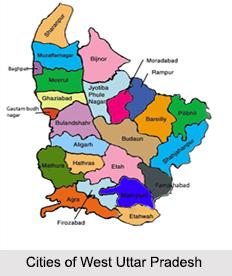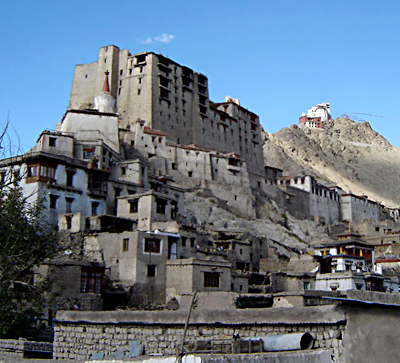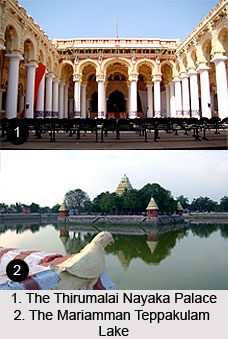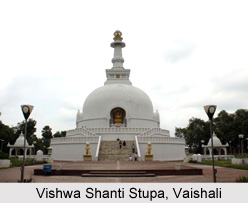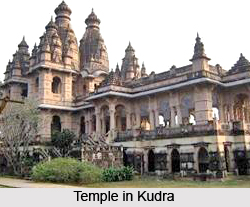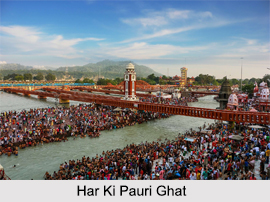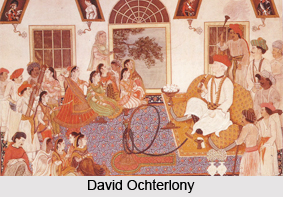 David Ochterlony was the last Baronet of Pitforthy and the first Baronet of Ochterlony in late medieval era, and the British resident in India in the Mughal court in Delhi. He came to India after the demise of Mughal Emperor of Aurangazeb.
David Ochterlony was the last Baronet of Pitforthy and the first Baronet of Ochterlony in late medieval era, and the British resident in India in the Mughal court in Delhi. He came to India after the demise of Mughal Emperor of Aurangazeb.
Early Life of David Ochterlony
David Ochterlony who was also referred as "Sir" was born on 12th February 1758. He was a Massachusetts-born general of the British East India Company in India. He held the powerful post of British Resident to the Mughal court at Delhi. David Ochterlony was born in Boston, Massachusetts, and attended the Dummer Charity School (now known as The Governor`s Academy) in nearby Byfield, Massachusetts.
Later Life of David Ochterlony
In 1777, David Ochterlony went as a cadet to India, where he served under Lord Lake in the battles of Koil, Aligarh and Delhi, and was appointed resident at Delhi in 1803. In 1804, David Ochterlony had been promoted to the rank of Major-General. He defended the city with a very inadequate force against an attack by Yashwantrao Holkar. On the outbreak of the Anglo-Nepalese War (1814-15) David Ochterlony was given the command of one of four converging columns, and his services were rewarded with a baronetcy created on 7th March 1816. Subsequently he was promoted to the command of the main force in its advance on Kathmandu, Nepal and outmanoeuvring the Gurkhas by a flank march at the Kourea Ghat Pass, brought the war to a successful conclusion and obtained the signature of the Treaty of Sugauli (1816), which dictated the subsequent relations of the British with Nepal. For this success Ochterlony was created Knight Grand Cross of the Order of the Bath, the first time that honour had been conferred on an officer of the British military in India.
Saheed Minar or the Monument of David Ochterlony
In the Pindari War (1817-18), David Ochterlony was in command of the Rajputana column, made a separate agreement with Amir Khan, detaching him from the Pindaris, and then, interposing his own force between the two main divisions of the enemy, brought the war to an end without an engagement. David Ochterlony was appointed resident in Rajputana in 1818, with which the residency at Delhi was subsequently combined, and during this period encountered and engaged in an ongoing personal feud with James Tod, which was based most likely on the power politics within the hierarchy of British East India Company.
Incidents in India
When Durjan Sal revolted in 1825 against Balwant Singh, the infant Raja of the Princely state of Bharatpur, David Ochterlony acting on his own responsibility supported the raja by proclamation and ordered out a force to support him. However, the Governor-General of India, Lord Amherst, repudiated these proceedings. David Ochterlony who was bitterly chagrined by this rebuff, resigned his office, and retired to Delhi. The feeling that the confidence which his length of service merited had not been given him by the governor-general is said to have accelerated his death, which occurred at Meerut in 1825 where he is interred in St. John`s Church, Kolkata, West Bengal. The Ochterlony column at Calcutta commemorates his name. Now it is named as Saheed Minar.
In Mughal Court
David Ochterlony came as the official British Resident at Delhi. He again adopted and thoroughly embraced Persian Mughal culture. David Ochterlony was reputed to have thirteen Indian concubines or wives. Every evening, David Ochterlony used to take all thirteen of his wives on a promenade around the walls of the Red Fort, Delhi, each on the back of her own elephant.
Related Articles
Capital Cities of India
Kolkata
History of Kolkata
Culture of Kolkata
Economy of Kolkata
West Bengal, Indian State
Alipur, Kolkata
